If you've never used a VPN service before, choosing one can seem a daunting prospect. But we'll tell you what to look for and recommend the services to choose between.
There are a few reasons to use VPN. One of the most common is to watch blocked videos but another is to help to keep your internet activity private.
You can use a VPN on many types of devices, from your phone to your laptop and even some TVs. If you don't have a compatible smart TV, you can use a VPN on a media streamer such as the Amazon Fire TV Stick.
The great thing about most VPN services is that one account can be used on multiple devices at the same time. This makes the low monthly price even better value as the whole family can use it.
Even if you're already familiar with these benefits of a VPN, you may not know which one is the best. And that's why you're here of course.
Why have we picked these VPN services?
Testing and reviewing VPN services isn’t as simple as you might think. There are many factors to consider: the cost per month, connection speed, number and location of servers, the apps on offer, quality of tech support and other important factors such as privacy and data logging policies.
There's also the ownership. This should always be transparent, and it should raise red flags when it isn't. For example, certain companies own both VPN services as well as websites that review VPN services. This doesn’t always have to be the conflict of interest that it seems, but it certainly can be. (We'd like to point out that neither IDG, which publishes Tech Advisor, nor its parent company own any VPN services.)
We also look closely at companies that own multiple VPN services and whether they say data is shared between those services and what other activities they’re involved in.
When you use a VPN, you’re entrusting that service with all of your internet data because it passes through their server first, where it is decrypted before being sent to its final destination.
That’s why we place such high importance on independent audits: it’s not enough for a VPN to say they don’t log any data - they should prove it so that you don't have to take their word for it.
Most, but not all, VPN services rent servers from other providers. This means the providers own the servers and have physical access to them. VPN services should use reputable datacentres and put measures in place to safeguard your data, but this is why owning and operating their own hardware goes in favour of the few VPN services that don’t rent servers.
All this means the services below are the only ones we currently recommend and, even then, sometimes only for streaming video rather than for privacy. They’re also the ones we’d use ourselves.
We have reviewed many others, which you can see if you browse all our VPN reviews, but they didn’t make the cut. They might have been included in this list before, but now they’re not.
Services we've reviewed but don't currently recommend include: IP Vanish, HMA, Bullguard VPN, Bitdefender Premium VPN, Goose VPN, Hotspot Shield Premium and ClearVPN.
1. NordVPN
- Excellent speeds
- Unblocks lots of video services
- Independently audited
Cons
- Not the cheapest
- Not unlimited connections
- From $3.71 per month
NordVPN is easy to use, fast and offers lots of servers around the world.
Based in Panama and with an audited no-logs policy, Nord is a good choice for many reasons. Thanks to NordLynx (a WireGuard protocol), it's the fastest VPN around and and offers a good range of features including split tunnelling on Android and Windows, which lets you pick which apps use the VPN connection and which don't.
The two-year subscription is the best value at the time of writing. There's a money-back guarantee in case you're not totally happy too. It's not the cheapest you'll find but, overall, it's the best all-round choice for most people.
See all prices and plans at NordVPN.com.
Read our full NordVPN review
2. Surfshark
- Unlimited connections
- GPS spoofing
- Multi-Hop severs
Cons
- No split-tunelling on Mac
- 9 Eyes location
From $2.49 per month
Surfshark has an easy-to-use interface and a good range of features. It has apps for all popular devices (and add-ons for web browsers), but one of the main attractions is that it costs less than most of its competitors. And that's despite allowing an unlimited number of connections.
With support for WireGuard (meaning excellent speeds) and MultiHop servers for greater security and privacy, the only issue is Surfshark's recent change in location from the privacy-friendly British Virgin Islands to the Netherlands, which is one of the '9 Eyes' countries that shares intelligence with others.
Surfshark operates with a no-logs policy, so no usage or user data should be available if Dutch authorities demanded logs be handed over or if they seized one of Surfshark's servers. But as this policy has never been audited, you'll have to take Surfshark's word that it doesn't record that data.
If you just want to VPN to unblock streaming services, though, none of this matters: it's only a potential problem if you want a VPN for privacy. And Surfshark is good at unblocking Netflix, Amazon Prime and other services. However, when we tested in January 2022, it wouldn't unblock BBC iPlayer but did let us watch UK services including ITV Hub.
Read our full Surfshark review
3. VyprVPN
- Runs own hardware (doesn't rent servers)
- Independently audited
Cons
- Only 5 connections
- Can't pay anonymously
From $1.81 per month
VyprVPN owns and operates its entire network of around 700 servers and has been audited to prove that it sticks by its no-logs policy. The fact it owns those servers means it does not rent servers from a datacentre and then install its VPN software on top, and that the datacentre employees have no access to those servers.
If privacy is your top priority, VyprVPN is therefore a good one to add to your shortlist. Just note that you can’t pay truly anonymously for the service.
Features vary by device, as they do with all VPNs, but the good news is that VyprVPN supports WireGuard now. Overall, this is a speedy and reliable service.
See the latest deals on VyprVPN's website.
Read our full VyprVPN review
4. PureVPN
- Audited no-logs policy
- Good unblocking
- Servers in 140 countries
Cons
- WireGuard protocol only in Windows app
From $3.33 per month
A decent choice for streaming, thanks to a huge choice of countries and - when we checked - actually able to unblock Netflix, iPlayer and other services.
PureVPN has now switched from its previous Hong Kong jurisdiction to the British Virgin Islands, which is much more privacy friendly. It can also be commended for allowing its no-logs policy to be 'snap audited' (an unscheduled audit that the company couldn't prepare for) and when this happened recently, KPMG was able to certify it again as a true no-log VPN.
Another recent improvement is the removal of almost all virtual servers and now claims 98.7% physical server locations (that's 67 servers in total which remain virtual), and the upgrade of UK and US servers to 20Gbps connection speeds.
Our chief complaint is the continued lack of WireGuard (it's in beta in the Windows app and though was promised for all platforms by the end of 2021, is still absent).
There's decent 24/7 live chat to help sort any problems, and the service is competitively priced: you can find the latest deals on PureVPN's website.
Read our full PureVPN review
5. Hidden24
- Owned & managed hardware
- Unblocks Netflix & iPlayer
- Best for privacy
Cons
- No apps
- Not the most user friendly
- Only 1 connection at a time
$5.99 per month
Hidden24 is different to the other services here. It's designed for privacy, first and foremost.
That's why it takes a completely different approach, using a device's own VPN capability instead of an app. That means it will work on Android, Mac, iPhone or Linux as well as Windows, but you can't change servers as easily as you can in a VPN app and there's no kill switch.
There are currently seven location to choose between, but while that's a small number, Hidden24 owns and operates all those servers and they're designed to be as secure as it's possible to be. Not even Hidden24's staff can access those servers and they run custom code - not open source software on top of Linux as with most rented VPN servers in the cloud.
That's why it's a solid choice if security and privacy are your top priorities (and why it's ideal for journalists, who can use the service for free).
It also reliably unblocks Netflix, iPlayer and other streaming services, which is a bonus, but only in the seven countries available: UK, US, Germany, Italy, France, Spain & Sweden.
Because Hidden24 logs literally nothing, not even user sessions, you're restricted to using just one device at a time and connecting on a second device will stop the connection on the first device.
You could get unlimited connections by configuring a compatible router to connect to the VPN instead.
This alternative approach to VPN isn't for everyone. But it's a great choice if you want the best privacy are are happy to forego convenience to get it. It's also much cheaper than its rivals if you only subscribe for a month. If you prefer a longer subscription, you can get an exclusive deal on a two-year plan for £3.29 per month.
Find out more about the plans available at Hidden24.co.uk.
Read our full Hidden24 review
6. Ivacy
- Very cheap
- 24/7 tech support
- Unblocks Netflix & iPlayer
Cons
- Fewer servers than rivals
- Unaudited privacy policy
From $1.16 per month
Ivacy may not have as many servers as some VPN services, but it does tick a lot of boxes. Those servers allow P2P downloads and they unblock a lot of popular streaming services (though not Amazon Prime).
Apps are available for a wide selection of devices. They're not the most polished around, and speeds aren't the best, either. We're told that WireGuard support is coming, but for now the best speeds are via OpenVPN.
There are a few niggles such as no automatic connection when your phone or laptop connects to an untrusted Wi-Fi network, nor any way to see how busy a particular server is.
If you're after privacy, there are better choices here. Ivacy hasn't had its privacy policy independently audited so you simply have to take its word for it that it doesn't log the information it claims not to. Others here, including NordVPN and PureVPN, have had their policies have been checked and verified by independent third parties.
But for unblocking websites and video services at a very low price, Ivacy's five-year deal is great value.
Read our full Ivacy review
7. Hide.me
- Free version
- IPV6 support
- Customisable double-hop servers
Cons
- Relatively expensive
- No independent audit since 2015
From free (Premium subscription from $5.41 per month)
Hide.me is a good VPN service overall. It has made some changes to its service which address our previous criticisms, primarily the fact that it now unblocks Netflix and other streaming services.
You can try Hide.me before you buy with a completely free version (which is, of course, feature-limited) but if you want to unlock the full range of servers and get unlimited bandwidth, you'll find it's more expensive than certain rivals even with its cheapest multi-year subscription plans.
It's one of the few VPN services that supports IPv6 and also the WireGuard protocol. It now allows you to use 10 devices simultaneously, which is double what it used to.
Hide.me is based in Malaysia, which is outside of the "14 Eyes" and operates a no-log policy. It says it was one of the first companies to get an independent audit, but you can't read this and it was back in 2015. We'd like to see it publish an up-to-date audit of at least its privacy policy. It is one of the members of the VPN Trust Initiative, though.
Read our full hide.me VPN review
8. ExpressVPN
- Unblocks 200+ streaming services
- Speedy Lightway protocol
Cons
- Expensive
- Only 5 connections
From $6.67 per month
Easy to use and packed with features, ExpressVPN is the one to choose if you're looking for a premium VPN service that will reliably unblock streaming content.
It offers lots of apps, browser extensions that actually use the VPN service and a router app that's surprisingly competent. There's great tech support if you ever need help, too.
Thanks to the proprietary Lightway protocol, connection times are speedy, as are connection speeds.
None of this comes cheap, though, with ExpresVPN costing considerably more than rivals per month.
Read our full ExpressVPN review
9. CyberGhost
- Good speeds
- Generally good at unblocking video services
Cons
- No independent audit
- No split tunelling on Mac
From $2.75 per month
CyberGhost is a popular VPN service based in Romania.
We've found in our - admittedly sporadic - testing that unblocking can be a bit hit and miss, with some issues with BBC iPlayer in the past.
However, in general, it is a good choice for unblocking streaming services and it has an absolutely huge selection of servers, so if one doesn't work, you can try a few others.
There is also a selection of 'NoSpy servers' which are owned and operated by the company at its Romanian HQ and provide a more secure option than all the other rented servers, which can be a bonus for when you're not simply watching video from other regions. As long as you're not on the rolling one-month plan, access to these is included in your subscription.
With its longer subscriptions and regular deals, CyberGhost can be one of the better-value options, and has handy Amazon Fire TV and Android TV apps. Plus, you can connect seven devices at the same time.
Read our full CyberGhost review
What to look for in a VPN service
Because VPN services vary in price quite dramatically, it can be tempting to just go for the cheapest. That's not necessarily a bad idea, but it is still important to choose one you trust and that will offer the features you require. The old adage "you get what you pay for" doesn't really apply to VPN services.
The first major decision is what you want to use a VPN for. If you just want to watch videos from HBO Max, Disney+ or another service that's not available in your country, then you don't have to worry too much about any other details: just go for a well-priced service that offers unblocking for the services you need. A VPN's privacy credentials aren't as important, but do remember that when you connect to a VPN, all the web activity that happens over that connection could potentially be seen by the VPN provider.
Most VPNs offer a 30-day money-back guarantee so you can try them out and make sure they let you access the services you need.
If you're more concerned about privacy and security, you'll want to go for a VPN that doesn't log any data and ideally owns and manages its servers, rather than renting servers from a datacentre. Put simply, if you want to minimise the risk of your VPN service being hacked and your identity, location and activity being exposed, opt for one which runs hardware that's exclusively under its control. And if your life depends upon your VPN connection, it's probably not a good idea to use a consumer VPN service at all.
Don't be persuaded by a bigger choice of countries: it doesn't mean it's a better choice. What you should look for are servers in the countries you either need to appear to be in or are physically present in, as a local VPN server will always give you the fastest speeds from any given service.
It's highly likely you'll only use handful of the servers available, and you certainly won't want to connect to a server the other side of the world if it reduces your internet connection speed to a crawl.
Testing a VPN service's speed is tricky as it varies all the time. The best way to find out if a service is quick or not is to read our reviews.
Just about all VPNs support Windows, Android, iOS and macOS, but some offer apps for a wider selection of devices including Amazon Fire TV Stick, Linux and web browser extensions for Google Chrome, Firefox and others.
You don't actually need an app if your device supports a VPN connection, so you can enter your username, password and other details into your NAS, router or other device. However, that's a hassle when you want to change to a different server as you need to set up a connection manually for each one. Plus, it means you miss out on advanced features only available in the apps, including a kill switch if the operating system doesn't provide one.
Public / free Wi-Fi
It's a good idea to use a VPN is whenever you're connected to an open public Wi-Fi network in a café, hotel, airport or on public transport. When a Wi-Fi network doesn't require a password to connect (and entering your email or other details in a web browser doesn't count here) it means the connection from your phone to the network is unencrypted.
And that means it is possible for someone to spy on your activity. However, most websites and web services use encryption anyway: a VPN is more like an insurance policy just in case sensitive data does end up being sent as plain text.
One other thing to look out for is any restrictions on usage – some ban P2P (file sharing) while others are fine with it.
What is the '5 Eyes' and '14 Eyes' collective?
If you're most concerned about privacy, it's important to know where your VPN is based. Or, more specifically, where the business is registered and therefore in which jurisdiction it operates.
In recent years some countries have got together to exchange information freely, nominally in a bid to enhance everyone's security. However, many groups are critical of this behaviour, believing that mass surveillance impinges on our freedoms.
The main group of countries that can share information freely is called the Five Eyes. They come from the UKUSA agreement that, although begun back in 1941, was only made public knowledge in 2005. The agreement is between Australia, Canada, New Zealand, the United Kingdom and the United States, hence the name Five Eyes. Those countries have agreed to collect, analyse and share information between each other, and much of this intelligence is believed to be related to internet activity these days.
The 5 Eyes:
- Australia
- Canada
- New Zealand
- United Kingdom
- United States
The Five Eyes has grown to include a total of 14 countries, which is why you'll hear a lot about '14-eyes' when reading about VPNs. Third party countries were added over time, and now additionally include Denmark, France, Holland, Norway, Germany, Belgium, Italy, Sweden and Spain.
If your VPN provider is based within a country that is part of the 14 Eyes, it can be asked to share data of its customers and will legally have to comply. If your provider promises that it doesn't log any information, you're probably safe within the 14 Eyes, but it is more of a risk if privacy is your main concern and you might want to consider looking for a VPN provider that is based elsewhere.
What information does a VPN keep?
VPN providers generally claim to not log anything. These days it's rare for them to log connection time stamps, IP addresses and bandwidth used: they usually only log anonymous information 'necessary to maintain and improve the service'.
We check carefully using information available to us exactly what each service logs, and include this in each review.
If you're looking for complete anonymity, choose a provider that accepts payment in the form of gift cards or Bitcoin, which makes it near-impossible to trace any activity back to an individual. Just note that a VPN does not make you anonymous online.
VPN bans in China and Russia
Most VPN services claim to work in China and Russia. The truth is that it's a cat-and-mouse game where the governments work out how to block connections if they detect you're using a VPN and they're very good at doing so.
It means that you can't know for sure if a certain service will let you access Google and other sites on a particular day, and that's one reason why it pays to subscribe to a service with 24/7 live chat support: they'll be able to help you pick the right server and settings to bypass the blocks at that time.
The same goes for unblocking streaming services: they don't like VPNs and crack down on them as much as they can. And, again, having live chat support is useful when you run into problems. At the moment, many VPNs are unable to unblock BBC iPlayer - even big names such as ExpressVPN. So if this is important to you, check with the company first to see what the current situation is. Usually there is a solution: ExpressVPN offers a separate Media Streamer service which allows you to watch iPlayer content abroad.

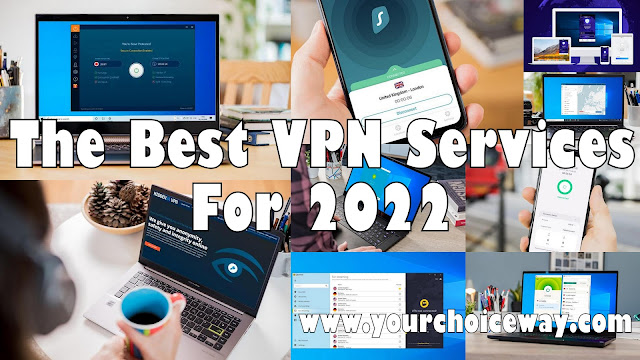
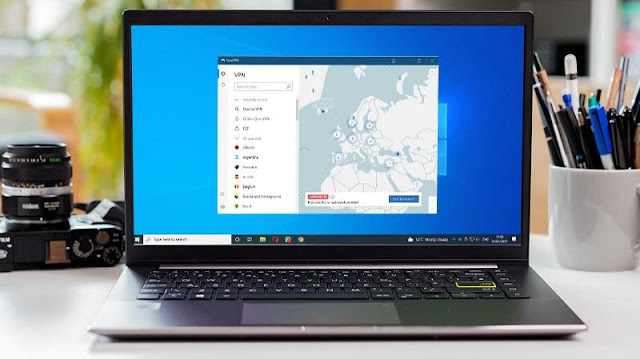


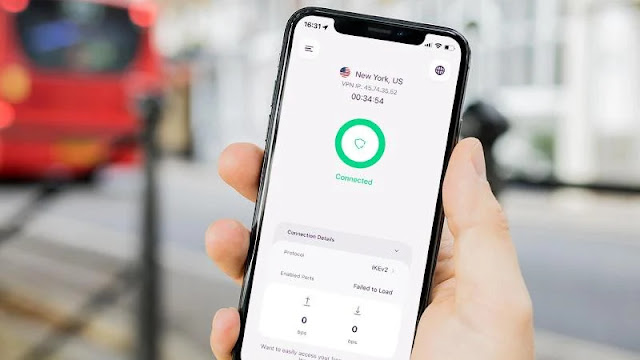







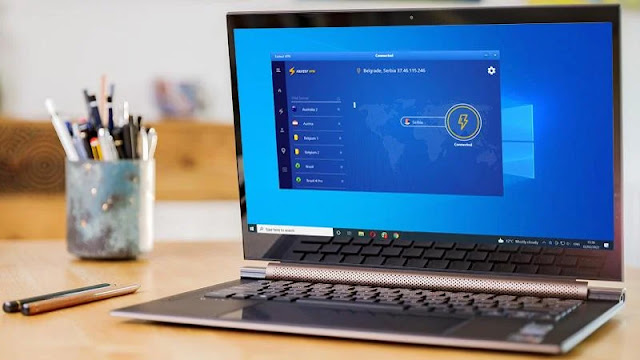






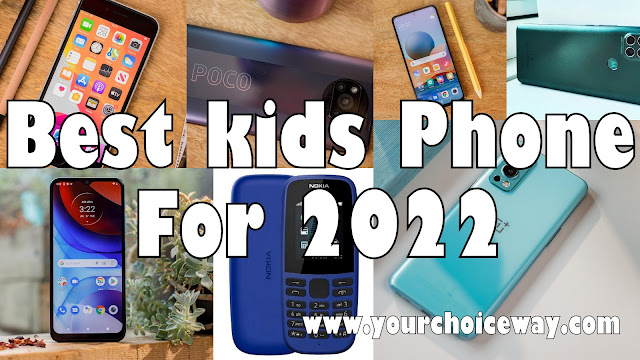




0 comments:
Post a Comment